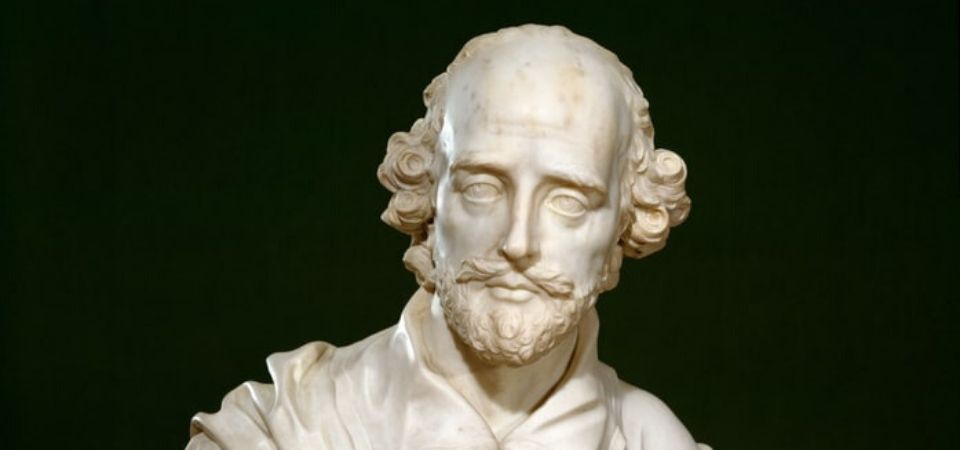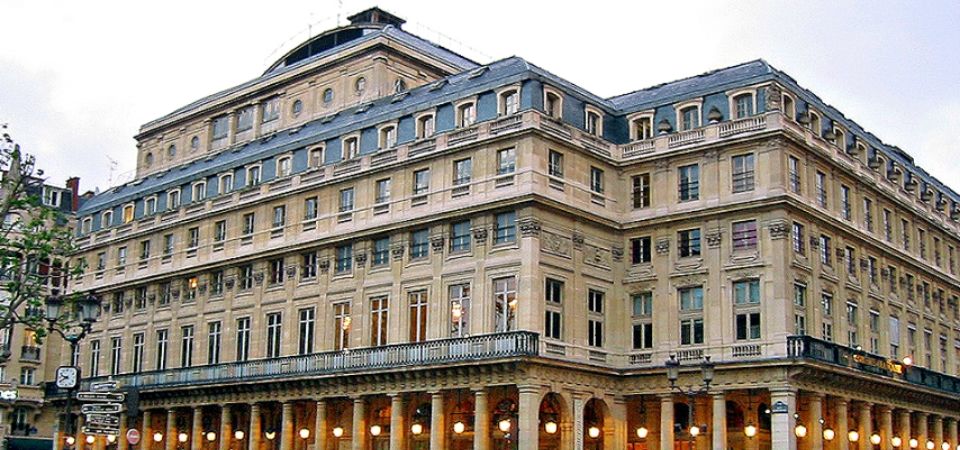- April 23, 2020
- Parisian theatre
- Sam Asher and Aysha Ferullo
We call him a poet, a playwright, an actor or simply the bard. This April marks the celebration of Wiliam Shakespeare’s 456th birthday. No doubt, this playwright has produced a prolific amount of work that remains a pinnacle part of our English literary vocabulary today. But can only English speakers take ownership of Shakespeare? No. The power of his pieces shows that art is not secular; that it can and should be spread accessible throughout cultures. A quote from the illustrious Victor Hugo himself deftly holds up this idea:
“Literature is the secretion of civilisation, poetry of the ideal. That is why literature is one of the wants of societies. That is why poetry is a hunger of the soul. That is why poets are the first instructors of the people. That is why Shakespeare must be translated in France. That is why Molière must be translated in England.”
Victor Hugo, The Minds and the Masses, 1864
Accessibility beyond language barriers? At Theatre in Paris, we couldn’t agree more with this sentiment.

Evident that great French writers took cues from Shakespeare’s legacy, did the bard himself have any concrete connection to the country? Sure. In Henry V, Shakespeare took a whack at his French proficiency. Throughout, he makes errors that a native French speaker would raise an eyebrow at, misplacing or misusing pronouns or mismatching the formal “vous” with the informal “tu.” If you’re an anglophone learning French, these are mistakes that you may still encounter today, and you may even see an eyebrow raised at you from a fellow French speaker for it. To balance the humility of his less than perfect mastery of the language, Shakespeare flips the script when writing dialogue for Queen Catherine in a completely phonetic fashion. Her responses of “I cannot tell wat is dat” truly tickles the likes of a native-English speaker.
Beyond his imperfect grasp of the language, was Shakespeare directly active in French culture at the time? We took a deep dive off a clue from some scenes in Henry V where he uses archaic versions of French words: for example, using "anglois" instead of "anglais" to speak of the English. Did they actually use this word, or is this an instance similar to when one takes a French class now? The class is taught the word “chouette” resulting in foreigners overusing the term. French friends and acquaintances respond: “Chouette?! Hah! My grandma says that.” To verify the validity of his vocabulary, we set off to find French playwrights who would have had the same age as Shakespeare. Though certainly not of the same celebrated calibre, Alexandre Hardy (1570-1632) seemed to be a good match to Shakespeare (1564-1616). Dedicated to the theatre through and through, his plays were written for stage and not to be published for fear of their security, so it’s no surprise he didn’t experience the financial bounties of his pieces. However, he worked fast and adapted many plays from various foreign and domestic sources (Coriolanus, or The Death of Alexander the Great, for example). A deeper look into these texts resolved that the archaic French that Shakespeare uses in Henry the V does indeed stand up to what could have existed at that time.
Upon further comparison between Hardy and Shakespeare’s work, we found that the structure of their work radiated similarities. Where the Renaissance placed more value on farce and spectacle, Hardy’s pieces went further into concise stories with five acts, providing action in a linear plot path and favouring stories that fit under the “tragicomedy” category - much like our friend Shakespeare. This unique style could be derived from Alexandre Hardy’s inclination to adapt works from foreign sources. Subsequently, his impact on the French lexicon of playwrights often goes overlooked. Though the use of complex words and phrases often led critics of the time to deem Hardy’s work “unreadable,” the structure of five-act-tragi-comedy scripts perhaps set the scene for Moliere’s success, whose vocabulary was much more concise and lyrical.
Want to see what the French classics were talking about? The Théâtre Ranelagh specializes in classic French pieces.

Translation
Shakespeare’s relationship with the francophone world doesn’t end at the contents of his plays, for there’s also the matter of translation itself. Shakespeare’s plays have been translated into every major living language in the world, and French is certainly no exception, though the journey may have been a slightly complicated one.
The first known translations of Shakespeare’s plays into French were from playwright and philosopher Voltaire, translating Julius Caesar in 1731, before translating Hamlet’s iconic ‘to be or not to be’ soliloquy in 1734. While the translation timeline started here, it posed issues in France at the time – Shakespeare’s plays were known to be full of anarchy and chaos, while 18th and 19thcentury French society promoted a life of order and rationality, thus causing clear friction between the two. Translators would, understandably, have had to appeal to the French public at the time, and the rhythm and structure of Shakespeare’s plays posed yet another obstacle. Plays during this time in France required Alexandrine verse, consisting of a different rhythm from Shakespeare’s iambic pentameter, not to mention the prose that Shakespeare would use when writing the lines of lower-class characters. Additionally, Aristocratic literature frowned upon the mingling of tragic and comic themes, as well as the supernatural, all tropes common to Shakespearian theatre, particularly that of ‘tragicomedy’ as we mentioned earlier.
Here’s a brief timeline of the translation of Shakespeare’s works into French:
- Pierre-Antoine de la Place, a fan of Shakespeare’s work, aimed to diminish the criticisms Shakespeare received upon his translating of Shakespeare’s complete works (the first in France). He mixed prose and Alexandrine verse while summarising instead of translating certain, more sensitive scenes.
- This acted as a steppingstone for Pierre Le Tourner to produce a translation closer to Shakespeare’s original scripts in 1776.
- Francois Guizot then adapted Le Tourner’s translation, as well as re-translating any remaining paraphrased or censored scenes and metaphors.
- This then prompted Francois-Victor Hugo to more fearlessly translate Shakespeare’s works, puns and all, while also providing the first French translation of Shakespeare’s sonnets.
- Enter Jean-Francis Ducis, being the first to translate Shakespeare for the stage, with his translation of Hamlet being performed at the Comédie Française from 1769-1852.
- Coriolanus was first translated by René-Louis Piachaud in 1933, being performed at the Comedie Francaise, with the French public at the time approving of this work, as they saw the play as a righteous criticism of political leaders at the time (a period of great political scandal, particularly due to the tensions caused by the rise of Nazism and Fascism in Europe).
It’s clear that Shakespeare’s translations into French have been on quite a journey, and it’s no secret that his plays continue to be translated, adapted and performed on stages of all scale today.

Now that we’ve caught a glimpse of the rich relationship that Shakespeare shares with France, why not have a go at seeing some Shakespeare in France for yourself? There are plenty of places to get your dose of one of Britain’s greatest treasures. One of our personal favourites is a small open-air theatre established in 1857 in the Bois de Boulogne, appropriately named Theatre de Verdure du Jardin Shakespeare. This forest-surrounded stage is open from May to September, with its haunting atmosphere providing the perfect backdrop for the moors of Macbeth and the Mediterranean landscapes of The Tempest. In 1991, London's Tower Theatre Company asked to form a partnership, staging Shakespeare plays in English. Shakespeare performances in their original language have been performed at this location every year since, making Shakespeare plays accessible to a French-speaking audience with the use of surtitles (our favourite – check out some other surtitled shows in Paris).
Additionally, The Comédie Française stages Shakespeare plays every season, there’s always something to watch. They’re performed in French, though if you already know the story of the play, language barriers shouldn’t be an issue.
If you don’t have time to see a play, take a trip to the Shakespeare and Company English Language bookshop, you’ll feel like you’re at The Globe in the flesh.
On behalf of all of us at Theatre in Paris – happy birthday, Shakespeare!





